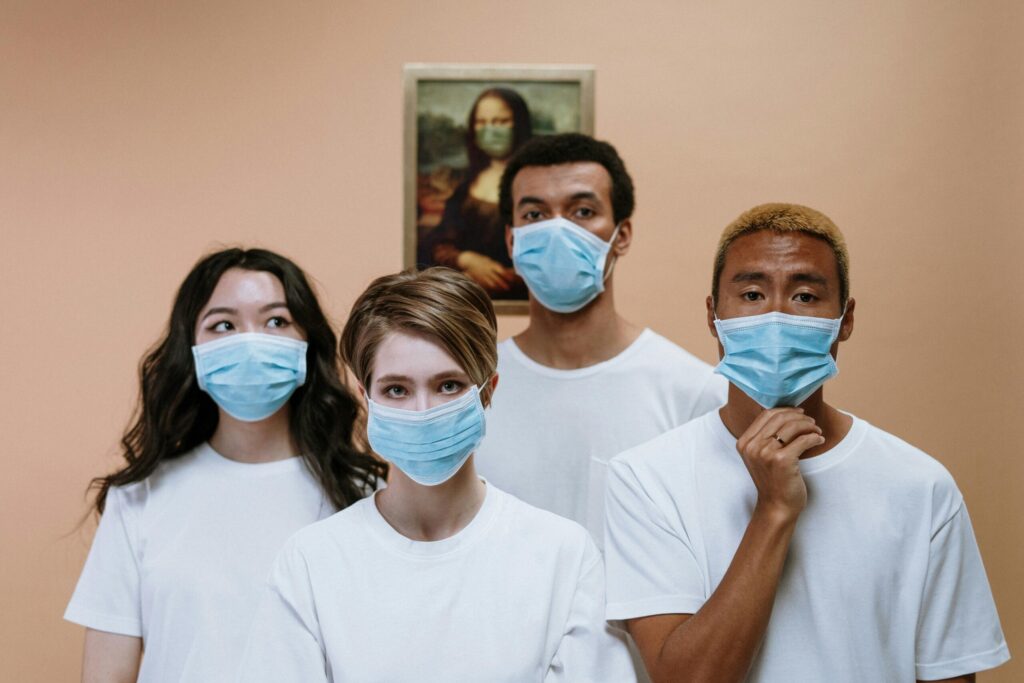With the growing demand for wellness-focused healthcare, nurses are stepping into broader, more impactful roles. An MSN degree is increasingly seen as a pathway to leading change in how we care for the whole person.
Nursing is evolving. Today, it’s not only the care of disease but the promotion of health in every sense. Emotional health, preventive medicine and every nurse with an advanced degree are reshaping the face of medicine.
With an MSN, nurses develop the skills and mindset necessary to treat patients beyond symptoms. Holistic care for wellness is now an important component of advanced practice in nursing and graduates of the MSN are taking the lead.
Comprehending Holistic Wellness in Contemporary Nursing Practice
Holistic health is greater than physical health. It is made up of emotional, mental, spiritual and lifestyle health. For nurses, that means that healing is not only achieved within the hospital, but within homes, within communities and within day-to-day practices.
The whole-person approach is not new, but increasingly, people are embracing it. Patients desire medication, but they also desire to be heard, supported and understood. They desire to discuss sleep, diet, stress and purpose. Nurse practitioners, the most consistently trusted health professionals, are optimally positioned to lead that discussion.
This shift in expectations is pushing the health system toward more individual, prevention-centered care. Nurses trained in holistic wellness principles are spearheading the transition.
A Foundation for Whole-Person Care
These nurse special programs are not only about treatment plans and diagnoses. They are also about health promotion, population health, behavioral science and sophisticated communication with patients. These are all aspects that make sure the nurses are considering the whole range of the health of their patients.
Many people ask what can I do with a MSN? Answer: you could be the health and wellness-based leader in care. The MSN nurses are taught how to evaluate patients in their environment, relations, stress and cultural orientation.
Many MSN programs include coursework on integrative health, patient coaching and disease prevention. These lessons help nurses empower their patients to make sustainable health changes. Whether it’s managing chronic conditions through diet or guiding stress reduction techniques, MSN-prepared nurses bring depth to their approach.
Empowering Nurses to Become Wellness Advocates
With higher education, nurses are transformed from caregivers to champions of wellness. They advise patients on lifestyle modifications, monitor them in the long term and collaborate in multidisciplinary care when necessary.
For instance, an MSN-trained nurse could consult with a patient on how to manage their diabetes, not only with medication, but also through developing a plan of nutrition, exercise and mental health support. They recognize that health is not only clinical, but also behavioral and emotional.
These nurses are also educators. They lead workshops, support groups and develop school, workplace or clinic wellness programs. Their greater familiarity with public health and health promotion provides them with the expertise. This helps them to effect meaningful change, community or individual by community or individual.
Integrating Evidence-Based Practice With Compassionate Care
Another of the strengths of the MSN curriculum is the focus on evidence-based practice. In short, nurses are taught to make clinical decisions based on the latest research. But almost as valuable is the ability to communicate those decisions in an empathetic, clear fashion.
That balance, of science and sensitivity, is the difference that the MSN-prepared nurse makes. They do not simply apply guidelines. They interpret sophisticated health information into useful recommendations that are specific to the individual’s goals, activities and lifestyle.
By combining clinical skills with compassionate coaching, the nurses of MSN build trust. The resultant trust produces increased engagement, better health outcomes and more empowered patients. In community facilities, private offices or hospitals, the nurses of MSN are informed and also bring heart to the practice.
The Future of Nursing
The global community is experiencing increased prevalence of chronic diseases, mental health issues and aging. Healthcare systems are challenged to move away from reactive care delivery and toward prevention. The transformation is spearheaded by the nurses with the degree of MSN.
They spearhead wellness programs, conceive public health campaigns and shape policy surrounding preventive care. They often work in leadership capacities in which they have a say in how healthcare is delivered, placing wellness front and center, not an afterthought.
MSN nurses also assist other caregivers in becoming more whole-person-oriented in their approach to patients. They advocate for whole-person care within the system. Their education enables them to close the gap between acute clinical treatment and ongoing health planning.
This is important leadership. It makes healthcare systems more sustainable and humane. It delivers care closer to those who need it. And patients aren’t merely surviving, they’re thriving.
Healthcare is evolving. Patients are demanding care that nourishes their whole being. More than pills, also compassion and direction. MSN-prepared nurses are responding. They’re taught to think broadly, to act compassionately and to lead effectively. They look behind the diagnosis to the person. And they apply their skills to facilitate wellness throughout the course of life. Holistic care isn’t just a trend; it’s the future. And MSN nurses are helping build it, one patient, one family and one community at a time.



 Gracenie Stamperon
is a dedicated wellness enthusiast and content creator for My Healthy Living and Strategies, a platform focused on promoting holistic health, balanced living, and personal well-being. Gracenie’s passion for healthy living stems from her lifelong interest in nutrition, fitness, and mindfulness. With a background in health education, she brings a wealth of knowledge and practical strategies to help individuals achieve their wellness goals.
Gracenie Stamperon
is a dedicated wellness enthusiast and content creator for My Healthy Living and Strategies, a platform focused on promoting holistic health, balanced living, and personal well-being. Gracenie’s passion for healthy living stems from her lifelong interest in nutrition, fitness, and mindfulness. With a background in health education, she brings a wealth of knowledge and practical strategies to help individuals achieve their wellness goals.